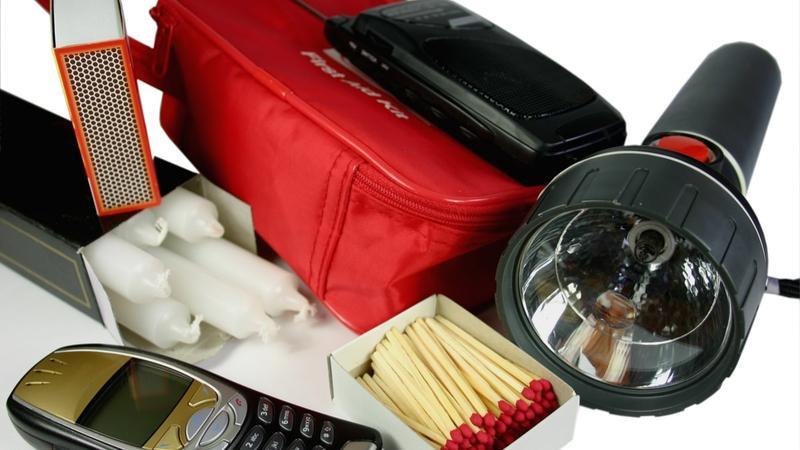Christmas time in southern Ontario brought some hardship last year. The power went out for days, in some cases weeks, and many homes did not see it return again until closer to the New Year. Trees fell on power lines and damaged homes. It was just one example of Mother Nature's wrath in a slew of blackouts that affected people across the country.
- Related Read: Ice Storm Damage and Your Home Insurance Coverage
- Related Read: Your Questions About Trees & Property Insurance Answered
Power outages in the winter bring many challenges. Homes lose heat and electricity, and sometimes running water. Now is the time to start thinking about preparing for these outages to ensure your family can get by when the power's out. The forthcoming winter has been dubbed the "T-Rex" of winters by Jack Burnett, editor of the Old Farmer's Almanac, and is expected to be one of the worst winters in memory. The energy industry is already preparing for it, but are you? If the power goes out again, will you be ready?
Emergency power outage kit
The Canadian government recommends every home be prepared for a power outage lasting at least 72 hours. One way to do this is to come up with a power outage kit to keep in an easily accessible place. The kit should include:
- Contact information for power company (so you can notify them that the power is out)
- Emergency contact information
- Self-powered or battery operated flashlights
- Candles
- Matches/lighter
- Glowsticks
- First aid kit with bandages, gauze, pain medications, antiseptic ointment, hydrogen peroxide, scissors and tapes
- Prescription medication
- Batteries
- Canned goods
- Can opener
- Water (recommended 2L of water per day per person)
- Self-powered radio
- Car chargers for your phone (your car can be used to power things, just make sure you don't drain the battery)
- Camping stove (never to be used indoors)
- Propane for your BBQ (should be stored outside away from any source of ignition)
- Warm blankets and clothes
- An evacuation plan for any members of your family with disabilities
Notifying your power provider
When your power goes out, check with your neighbours to see if their power is out too. This will help you determine if the outage is local to your home or if it affects a wider area. If it is local to your home, try resetting the breaker. If this does not work, or if the power affects more than your own home, you're going to want to first check your hydro provider's website via your smartphone to see if the outage has already been reported in your area. If not, contact your electricity provider's emergency number to notify them of the outage.
Here is a list of the main providers for each province, but it is not exhaustive. You may have another provider.
British Columbia – BC Hydro – 1-888-769-3766
Alberta (Calgary & surrounding region) – ENMAX – 403-514-6100
Saskatchewan – SaskPower – 310-2220
Manitoba – Manitoba Hydro - 204-480-5900 (Winnipeg) or 1-888-624-9376
Ontario – Hydro One – 1-800-434-1235
Quebec – Hydro-Quebec – 1-800-790-2424
New Brunswick – NB Power – 1-800-663-6272
Nova Scotia – Nova Scotia Power - 1-877-428-6004
Prince Edward Island – Maritime Electric – 1-800-670-1012
Newfoundland & Labrador – Newfoundland Power – 1-800-474-5711
Northwest Territories – Northwest Territories Power Corporation – 1-855-575-6872
Yukon Territories – Yukon Energy – 1-800-676-2843
Nunavut (Iqaluit) – Qulliq Energy Corporation - 1-800-491-8127
What to do in the event of a power outage
- Notify your hydro provider of the outage
- Turn off or unplug all appliances and electronics
- Keep one light on so you know when the power has returned
- Keep your freezer and fridge closed to help preserve food
- Close all doors and windows to conserve heat. If the sun is shining in and providing heat, leave drapes open, but close them otherwise
- Never light a fire indoors unless using a fireplace or wood stove that is up to code
Taking some time to prepare for an outage now can help ensure you and your family are warm, nourished, and protected in the event of a power outage this winter.
